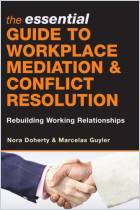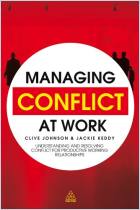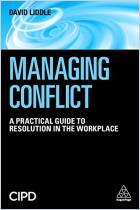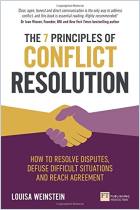Join getAbstract to access the summary!

Join getAbstract to access the summary!
John Crawley and Katherine Graham
Mediation for Managers
Resolving Conflict and Rebuilding Relationships at Work
Nicholas Brealey Publishing, 2002
What's inside?
Let’s work the whole thing out: how managers can mediate to resolve conflict, create peace and keep people productive.
Recommendation
John Crawley and Katherine Graham provide an excellent introduction to mediation for managers who are unfamiliar with this technique. The book may seem basic to experts, though its useful examples of mediation practices at work will help even experienced practitioners. This is a clearly written (complete with British vocabulary idiosyncrasies), well-organized resource for company owners, managers and supervisors, though they may need additional practice before applying these techniques. The authors describe the basic categories of conflict resolution methods, though they might have included the well-known Thomas-Kilmann categories of conflict resolution styles - an approach that also includes compromise. Otherwise, getAbstract.com feels no conflict at all in highly recommending this solid, hands-on book.
Summary
About the Authors
John Crawley is an author, speaker, trainer and international consultant who designs systems to resolve disputes and other organizational conflicts. As a leading creator of accredited training materials for mediators in the U.K., he was the principle consultant on the BBC Worldwide’s training video on managing conflict at work. He founded Conflict Management Plus in 1990. Katherine Graham is an experienced mediation manager and coordinates TroubleshooterUK, the resolution service of Conflict Management Plus.

















Comment on this summary